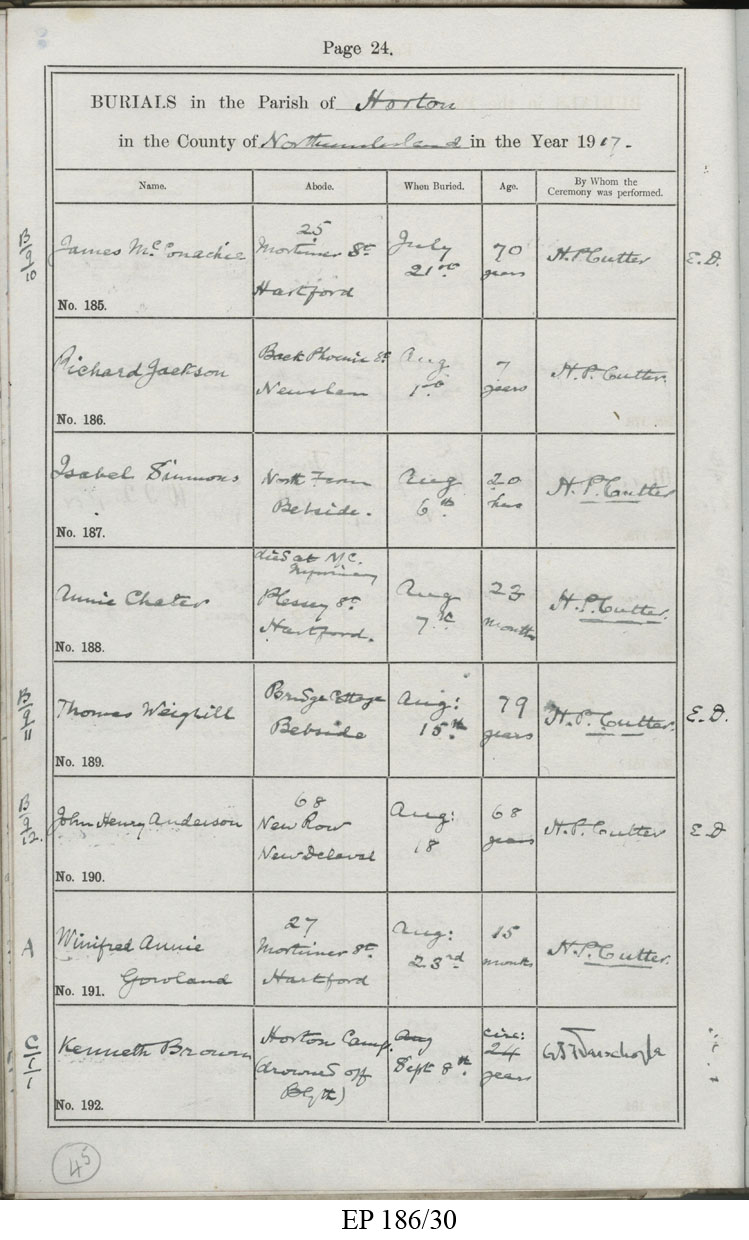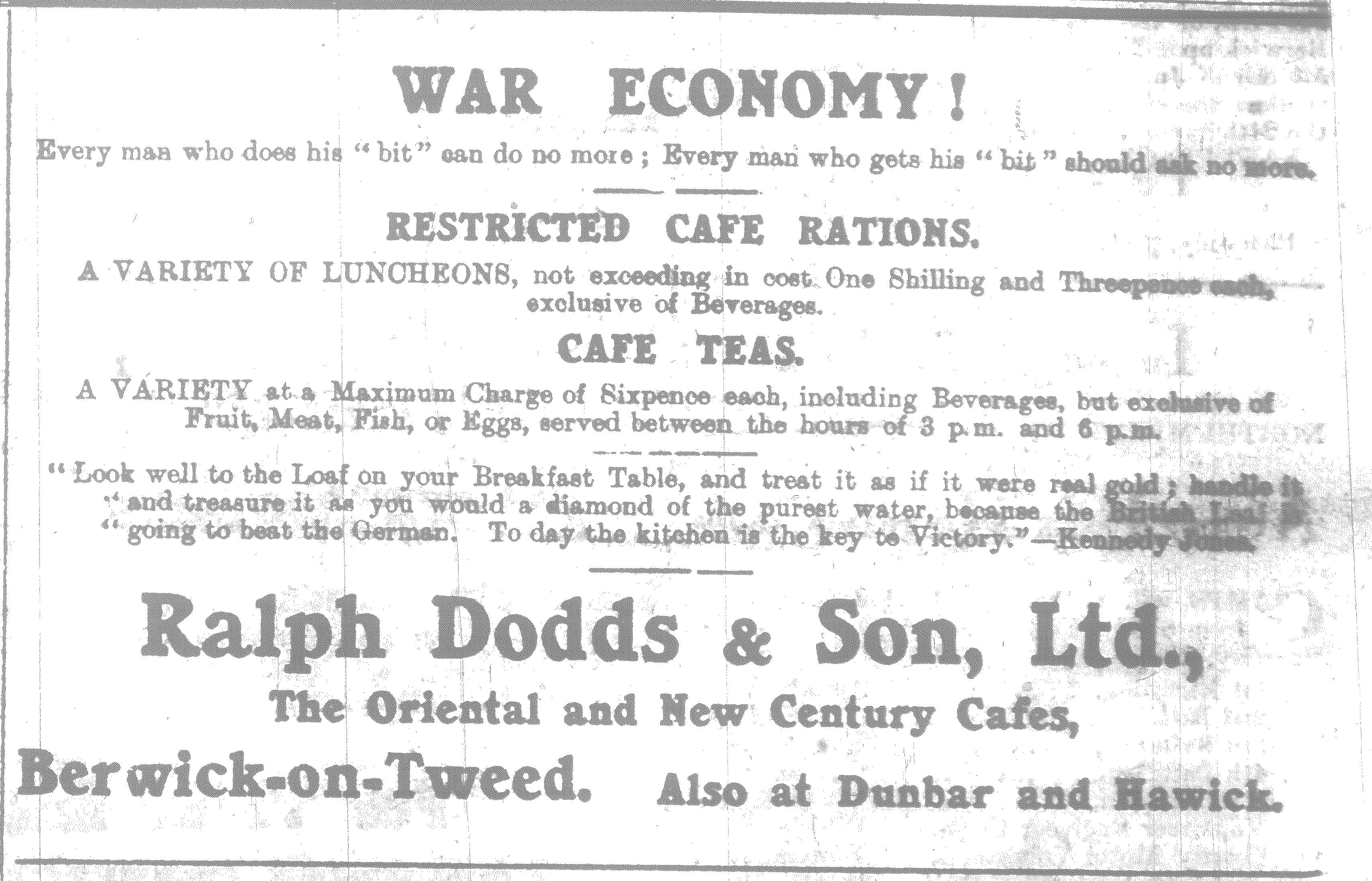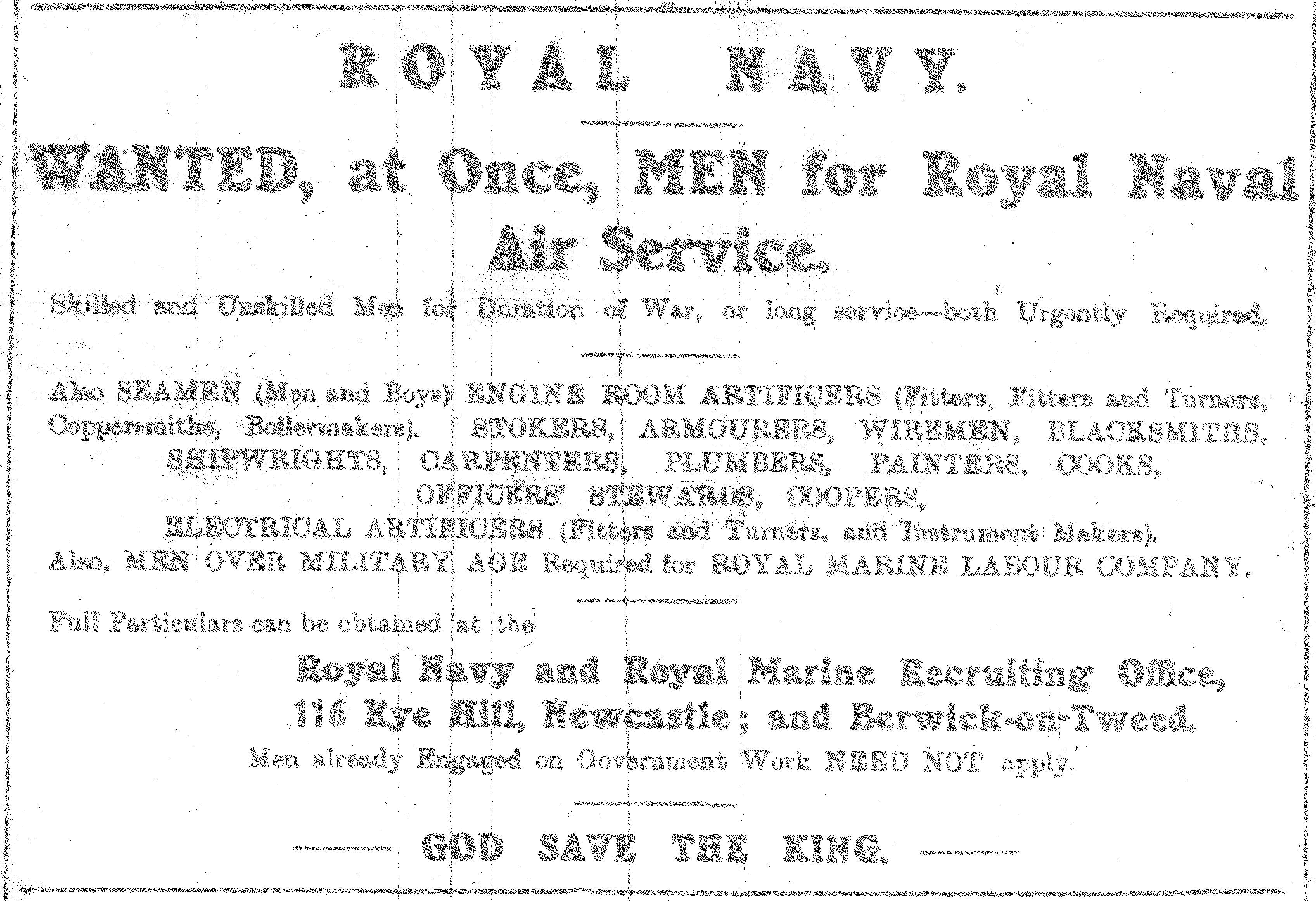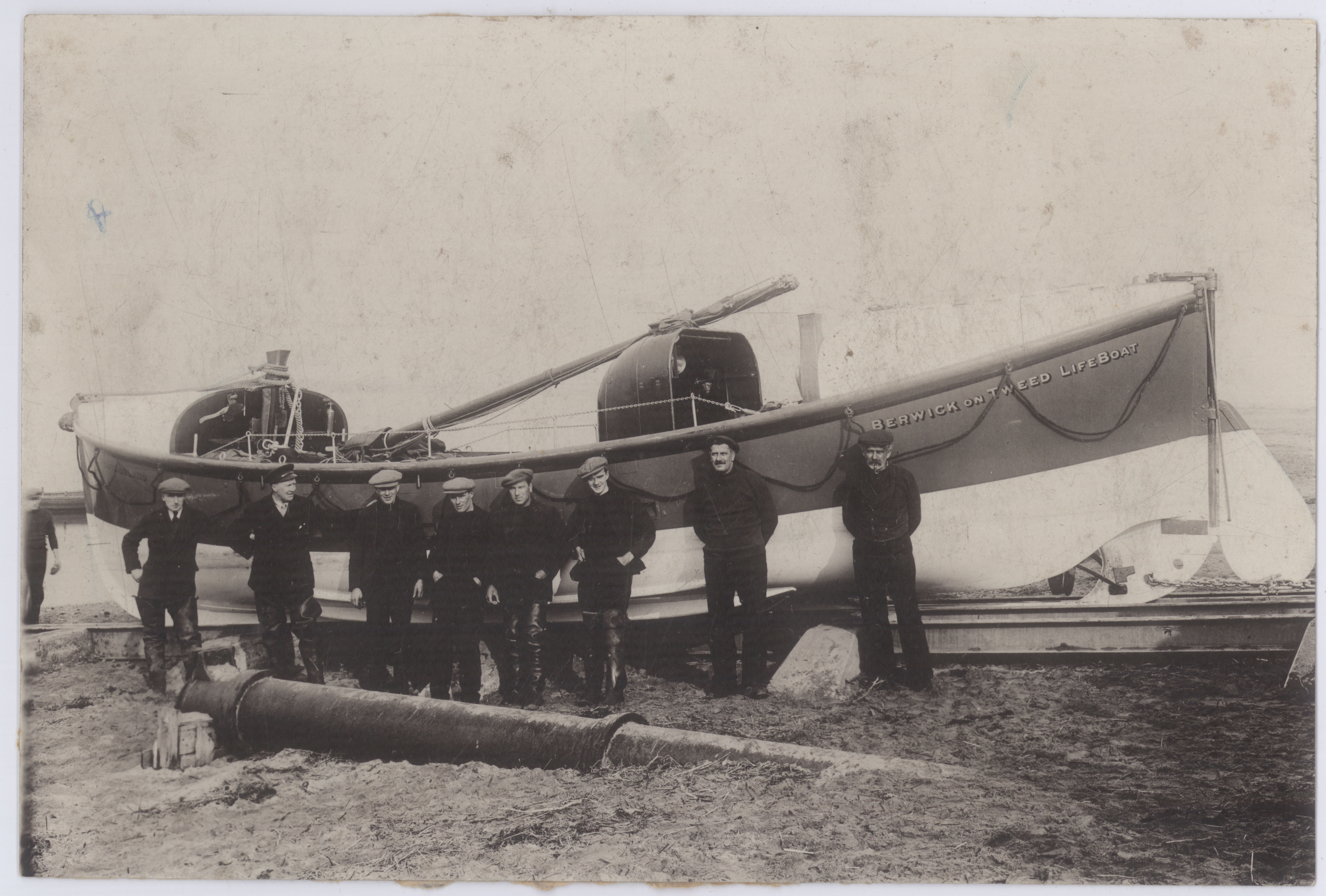BERWICK ADVERTISER, 27 JULY 1917
TWEEDMOUTH FEAST
A QUIET CELEBRATION
Tweedmouth Feast has come and gone once more under the shadow of war, and its attractions have in consequence been reduced to a minimum. Visions of the old days, when the festive board groaned under its load of good things, when the douce resident regaled himself with the succulent Tweed salmon, all Tweedmouth and its wife became possessed of the holiday spirit, and “the parish pump ran beer,” for those who cared to partake, have, it appears, passed into the forgotten limbo of the past. Older residents will look back with mixed feelings to the days when some local “drouth” was elected for the day as Mayor of Tweedmouth and driven round the “pubs” of his constituency in state.
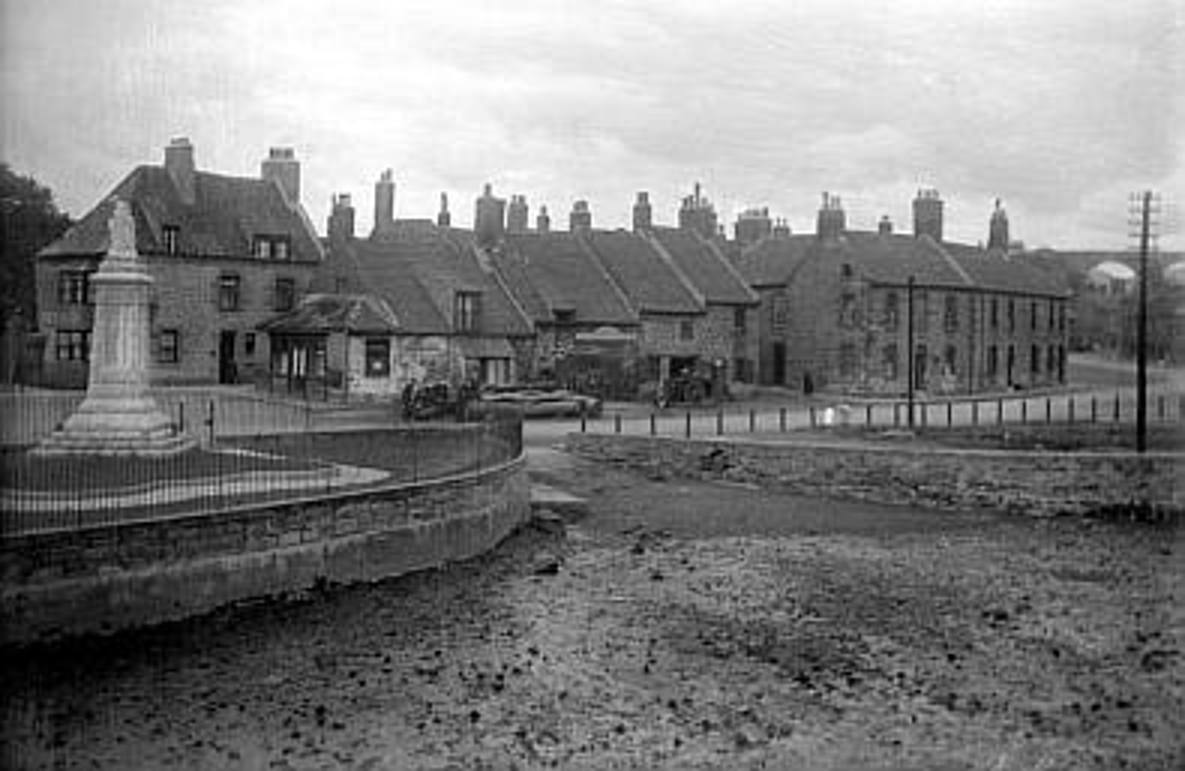
This form of cheap comedy is happily known no more, and in the interest of temperance alone it is well to be so. The amount of horse play attached to these proceedings rendered the mortal life of the “mayor” extremely precarious, for it is recorded that after having been reduced to a stage of hopeless intoxication, he was “dipped” in the Tweed and restored by his sudden immersion to a state of partial sobriety. The boat races, quoit mains, and foot races on the green at West End have also (we hope only temporarily) been allowed to lapse, but even amid it all it all there is a feeling which comes to the average “Twepie,” a feeling no doubt born of heredity and environment which sets the “Feast” down as something apart of the calendar of the year’s events.
SWIMMING GALA AT BERWICK
PLEASING MEETING IN IDEAL WEATHER
Not only the charm which the seaside holds for all in the sweltering days of July, drew a large and gala crowd to the foreshore at the Ladies’ Bathing Pond on Monday afternoon, rather we would imagine all were brought thither in the hope of witnessing amid enjoyable surroundings, sport of a first-class character. In the latter they were not disappointed and especially in the 22 yards race for school boys between the ages of 13 and 15 years and the 44 yards race for lads over 14 and under 17 years of age, competition was keen and the finishes of an exciting character.
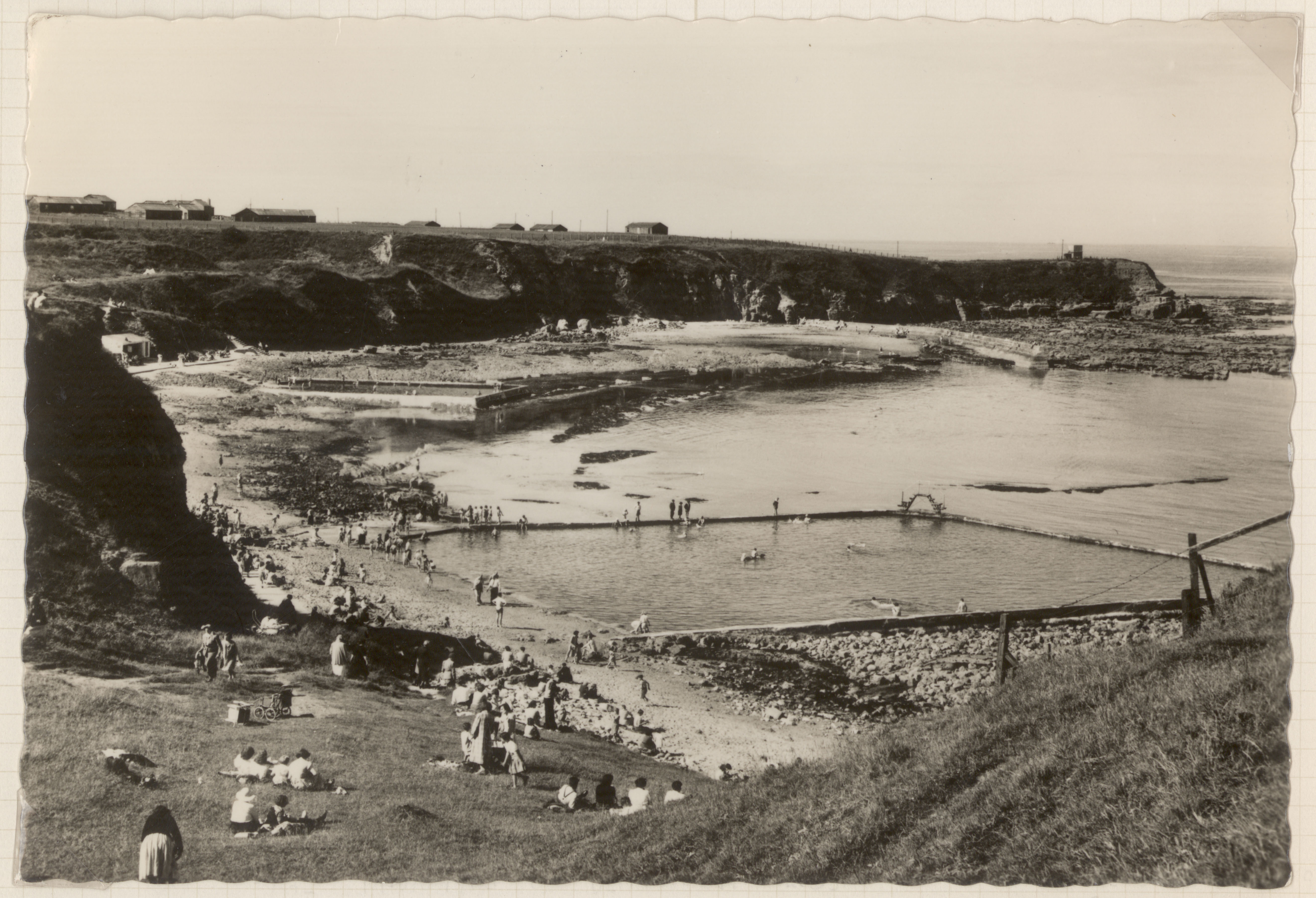
On the whole afternoon there was few surprises packets. Scout Hawkins, as we anticipated, was on the top hole of form, and his victories were indeed popular. A promising first year competitor was Bain Dickinson of St. Mary’s School and from the form which he displayed we should imagine the last has not been heard of him in swimming circles. Young Turnbull, Less and Walkenshaw, also are worthy of note and no doubt their exhibition will have caught the lynx eye of the local handicapper. Pleasure was given to the proceeding by pleasing selections discoursed by the Boy Scouts Pipe Band under Pipe-Mayor Dumbreck, Royal Scots.
At the close of the proceedings the prizes were presented to the successful competitors by the Rev. R. W. de la Hey, who had a pleasant word for each.
Mr Broadbent moved a hearty vote of thanks to the reverend gentleman for having come forward on the absence of D. H. W. Askew, Esq., and who had so pleasingly presented the prizes.
LOCAL NEWS
Herring Improving – On Tuesday morning a dozen to fourteen boats arrived at Berwick with from five to fifty crans of herring. The fish were larger and of improved quality, and sold from 27s to 60s per cran
More Herrings – Ten to twelve herring boats arrived at Berwick on Thursday morning with up to 60 crans each; quality poor, and selling a from 4s 6d to11s per cran.
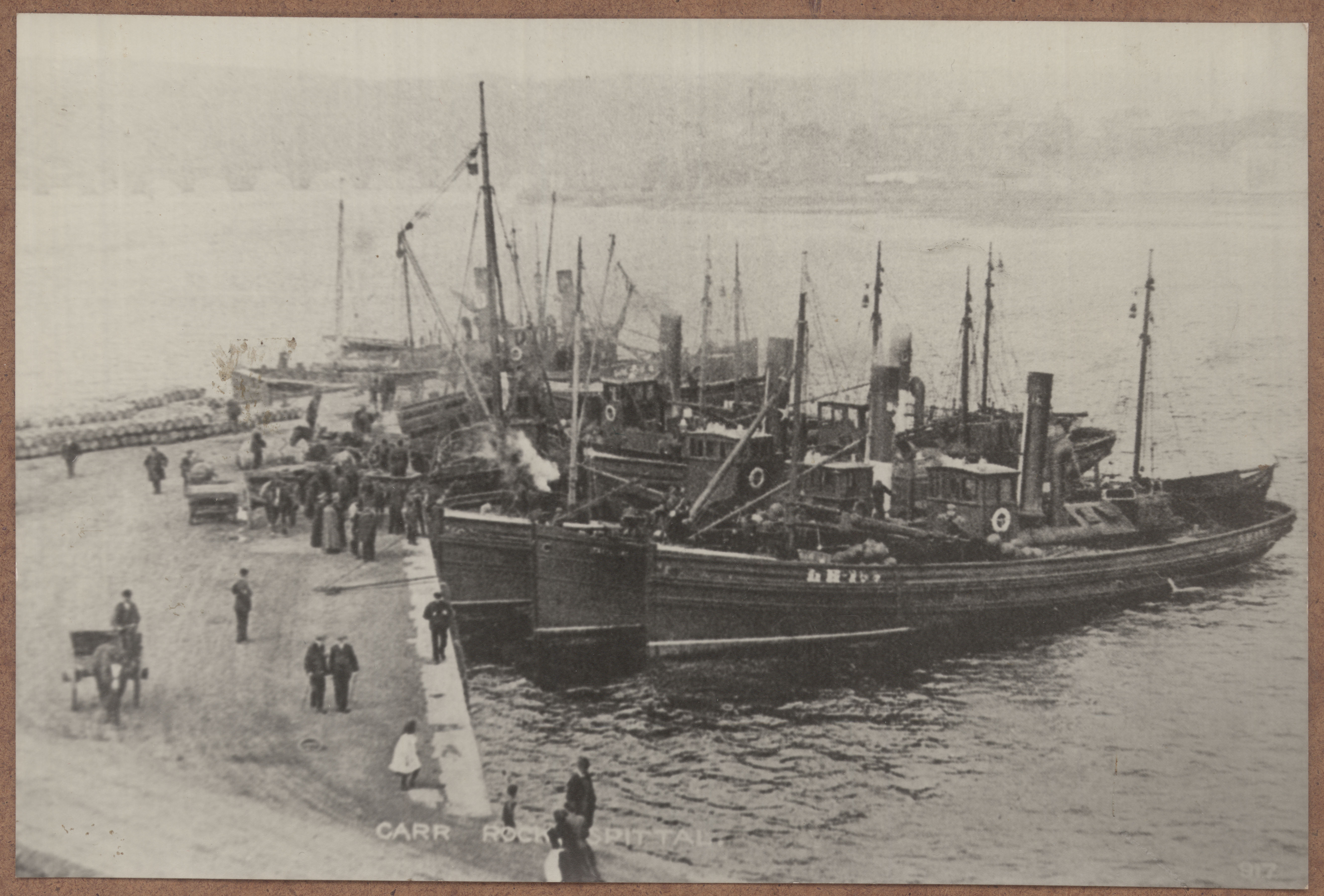
Salmon Fishing – The salmon catches during the past week have been most unsatisfactory. This is due to the continuous fine weather, which is not conducive to good fishing. River continues in a foul sate. A flood is urgently needed to clean the river. Prices during the week have risen, and on Thursday morning salmon was quoted at 2s 5d per ls; grilse, 2s 2d; and trout, 1s 9d.


